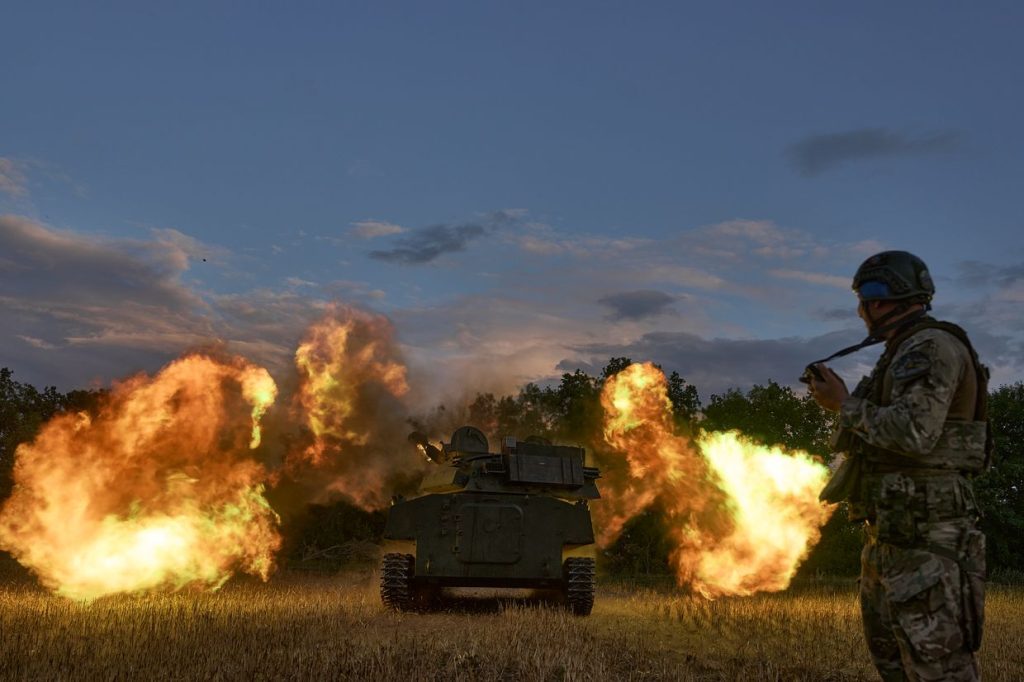Ukraine is not considering a ceasefire or ceding territory to Russia in its efforts to end the ongoing war, according to Mykhailo Podolyak, an adviser to the Presidential Office. Podolyak dismissed reports suggesting that Kyiv was willing to freeze the conflict as part of its “Victory Plan” as fake and dangerous. He warned that a ceasefire would only allow Russia to regroup and continue the war, potentially leading to more civilian casualties. Kyiv’s approach includes military operations in Russia’s Kursk Oblast, participation in global security infrastructure, diplomatic pressure on Russia, and economic strategies to end the conflict.
President Volodymyr Zelensky has announced that Ukraine’s “Victory Plan” is over 90% complete and will be presented to allies in the coming weeks. The plan focuses on various aspects, including military operations, global security cooperation, diplomatic efforts, and economic measures. Zelensky reiterated that there are no plans to cede territories or freeze the conflict, as such actions would only benefit Russia. Ukraine is also preparing for a second peace summit following the first global peace summit in Switzerland, where Russia was not invited. Kyiv aims to invite a Russian representative to the upcoming conference, signaling its commitment to finding a peaceful resolution.
Estonian President Alar Karis has emphasized the need to cross all “red lines” and start forcing Russia out of Ukraine. With Estonia sharing a border with Russia, Karis recognizes the challenges faced by countries in the region in the event of a direct confrontation with Moscow. The ongoing political developments in Washington, D.C. have raised concerns among European diplomats about the level of support they can expect from the United States in such a scenario. Karis’s diplomatic stance underscores the importance of unity and support from Western allies to counter Russian aggression and protect sovereignty in the region.
The Ukrainian government remains steadfast in its refusal to consider a ceasefire or territorial concessions to Russia in efforts to end the ongoing war. Mykhailo Podolyak, an adviser to the Presidential Office, reiterated Kyiv’s position that any pause in hostilities would only benefit Moscow by allowing it to regroup and escalate the conflict, potentially leading to more civilian casualties. The “Victory Plan” being developed by Ukraine includes military operations, global security cooperation, diplomatic pressure on Russia, and economic strategies to bring about a resolution to the conflict. President Zelensky has announced that the plan is nearing completion and will soon be presented to allies.
President Volodymyr Zelensky’s “Victory Plan” for ending the war in Ukraine includes military operations, global security cooperation, diplomatic pressure on Russia, and economic strategies. Zelensky has emphasized that there are no plans to cede territories or freeze the conflict, as such actions would only work in Russia’s favor. Ukraine is also preparing for a second peace summit, following the first global peace summit in Switzerland. Kyiv aims to invite a Russian representative to the upcoming conference, demonstrating its commitment to finding a peaceful resolution to the conflict. The government’s approach underscores the importance of unity and support from Western allies in countering Russian aggression and protecting sovereignty in the region.
Estonian President Alar Karis has called for crossing all “red lines” and beginning the process of forcing Russia out of Ukraine. With Estonia bordering Russia, the president recognizes the challenges faced by countries in the region, particularly in light of the ongoing political uncertainties in Washington, D.C. European diplomats are growing increasingly concerned about the level of support they can expect from the United States in the event of a direct confrontation with Moscow. Karis’s diplomatic approach highlights the need for unity and assistance from Western allies to confront Russian aggression and uphold sovereignty in the region, emphasizing the importance of a coordinated international response.














